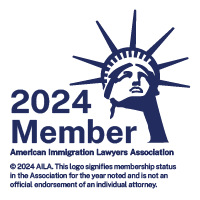EB3 Green Card Details
The EB3 employment based green card category is for professionals who hold a U.S. bachelor’s degree or its foreign equivalent degree that is normally required for the profession. Unlike in the H-1B category, for EB3 the combination of education and work experience may NOT be substituted for the degree. The foreign national must possess the actual degree.
The EB3 employment based green card is also for skilled workers and other workers who are NOT seasonal or temporary and who require at least two years worth of on the job experience or training, as well as “other workers” who are those capable of performing unskilled labor, again, NOT of a temporary or seasonal nature, for which qualified workers are not available in the U.S.
In order to obtain permanent residency through the EB3 category, the applicant must have an employer willing to sponsor him or her through the PERM labor certification process. The beneficiary does not have to be employed with the petitioning employer at the time when the PERM is filed. A job offer for the future is deemed to be sufficient. The PERM labor certification application is the process whereby, the U.S. Department of Labor (DOL) determines whether qualified U.S. workers can fill the open position. Once DOL approves the PERM labor certification application, the employer may sponsor the foreign beneficiary for permanent residency through USCIS.
The EB3 process is as follows:
The employer performs the PERM process;
Upon its approval the employer sponsors the employee for a green card with USCIS; after which (or at the same time, depending on the visa availability for the EB3 category at that point in time);
The employee adjust his or her status to permanent resident with USCIS.
For whom is an EB3 Green Card appropriate?
Professional, skilled and other workers who have a job offer from a U.S. employer, and their immediate family members.
What are the requirements for obtaining an EB3 Green Card?
Professionals: defined as members of the professions who hold a bachelor’s degree. Members of the professions include, but are not limited to architects, engineers, lawyers, accountants, physicians, surgeons, and teachers in elementary or secondary schools, colleges, academies, or seminaries. That list also includes any occupation or field for which a US bachelor’s degree (or its foreign equivalent) is the minimum requirement for entry into the field/occupation.
Skilled workers: defined as an individual, who at the time of petitioning, is capable of performing skilled labor, requiring at least 2 years worth of on the job work experience or training, NOT of a temporary or seasonal nature, and for which there are no qualified workers available in the United States. Relevant post-secondary education may be considered as training for the purposes of this provision.
Other Workers: defined as an individual who is to perform unskilled labor, requiring less than two years work experience or training, NOT of a temporary or seasonal nature, for which qualified workers are not available in the United States.
